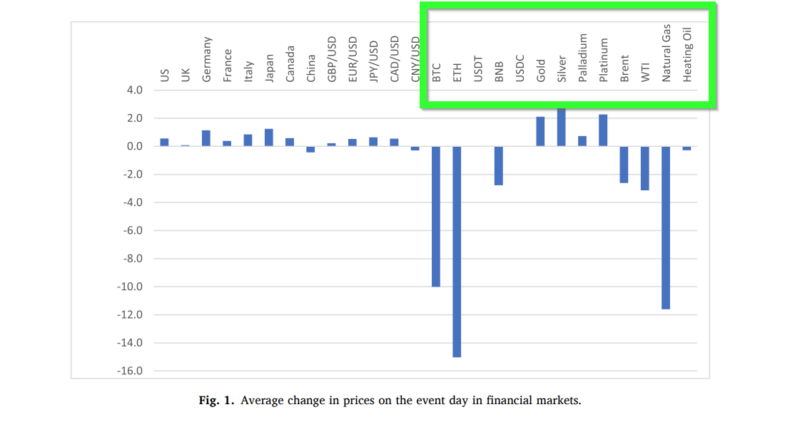This article deals with the degree of market vulnerability to spillovers from disruptions in the cryptocurrency markets. This study investigates the impact of the FTX collapse and bankruptcy across global financial markets.
What do responses of financial markets to the collapse of FTX say about investor interest in cryptocurrencies? Event-study evidence
- Imran Yousaf, Yasir Riaz, John W Goodell
- Financial Research Letters
- A version of this paper can be found here
- Want to read our summaries of academic finance papers? Check out our Academic Research Insight category.
What are the research questions?
In early November of 2022, FTX collapsed due to a liquidity event associated with the FTX token, FTT, and its trading arm, Alameda Research. At that time, FTX was the third-largest crypto exchange in volume and with over one million users. The standard event methodology is used to determine the impact of the FTX collapse on various financial markets, including equities, currency, cryptocurrency, metals, and energy. Risk-adjusted or abnormal returns were calculated using the market model and then accumulated and averaged across a 12-day event period (t-4 to t+7 days around the collapse date). The estimation period used to determine the market model adjustment was 235 days before the FTX event (November 29, 2021, to November 17, 2022).
- Were there significant spillover effects in response to the collapse of FTX on the global financial markets?
What are the Academic Insights?
- THE IMPACT WAS LIMITED. The most significant reaction was confined to cryptocurrency markets, it appeared irrelevant to traditional asset classes where there was little reaction. Significant and negative reactions were observed for Bitcoin, Ethereum and the Binance coin, while equities, energy and currency markets were unaffected. The average abnormal returns (ARs) were not significant for equity markets, currencies, all cryptocurrencies except Bitcoin and Ethereum, and all metals except gold. Positive abnormal returns to gold might be considered consistent with the movement of investors into safe-haven assets. When abnormal returns were cumulated (CARs) over the 12-day event window, the results remained insignificant for equity markets, for fiat currencies except JPY/USD, and crypto markets except for Bitcoin, Ethereum, the Binance coin, gold, and silver. Across all markets observed, the average Ars were significant and negative on the event day and day +1; while the CARs aggregated across all markets were significant and positive on either day -2 and day -1 around the FTX collapse. The average returns on the day of the FTX event, that is day 0, are presented in Figure 1.
Why does it matter?
Cryptocurrencies are not as significant as a threat to financial stability as previously anticipated. Although the study was restricted to the FTX case, it may be that traditional investors have already developed a substantial level of indifference to cryptocurrencies during the bear market before the FTX collapse. Despite that result, it is difficult to imagine that regulators will abandon efforts to contain spillover effects to traditional markets in the future.
The most important chart from the paper

Abstract
Studying the impact of the collapse of FTX on financial markets, we identify that, while this event was important to cryptocurrency markets, it was mostly irrelevant to traditional assets. Bitcoin, ethereum, and binance responded significantly negatively, while equity, energy, and currency markets were largely unmoved. Gold and silver having significant positive returns suggests cryptocurrency investors fled to purported safe havens. Results are consistent with traditional investors already having evolved to indifference to cryptocurrencies during the bear market prior to the FTX collapse. Results also suggest that cryptocurrencies are likely not as important a concern to financial stability as previously regarded.
